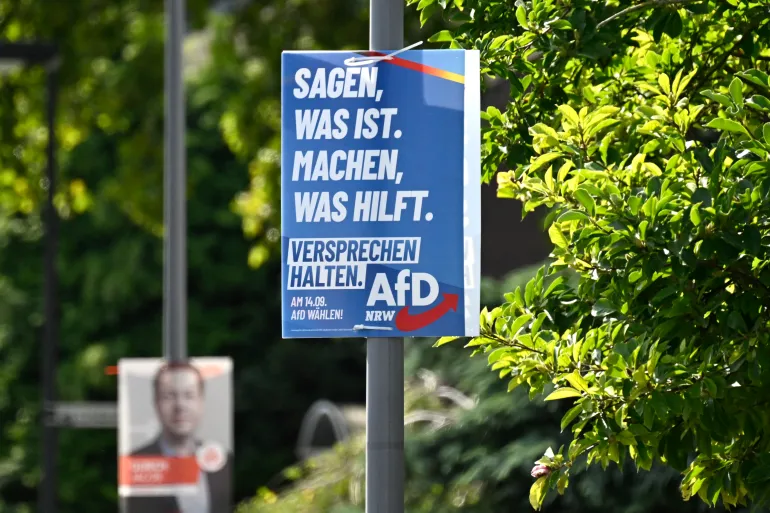Germany has stopped the far right Alternative for Germany (AfD) party from securing its first major city mayoral victory after a decisive run off election in the eastern city of Frankfurt an der Oder. The independent candidate Axel Strasser defeated the AfD’s Wilko Möller, winning nearly 70 percent of the vote compared to Möller’s 30 percent. Voter turnout was just under 50 percent.
The election result marks a significant moment for German politics, as it prevents the AfD from gaining control of a large urban center for the first time. The party, which has seen growing support in some regions due to its anti immigration and nationalist stance, had hoped this race would signal a breakthrough into mainstream politics.
Axel Strasser’s victory followed a second round of voting after no candidate won a majority in the first round. Candidates from traditional parties like the Social Democratic Party (SPD) and the Christian Democratic Union (CDU) were eliminated earlier in the race. Many of their supporters later backed Strasser to block the AfD from taking control of the city.
Frankfurt an der Oder, which lies on Germany’s border with Poland, has faced economic challenges and social tensions that the AfD often uses to gain voter support. However, this election showed that a majority of voters rejected the party’s divisive rhetoric and instead chose an independent leader focused on unity and local development.
The AfD’s defeat is especially notable because the party’s branch in the state of Brandenburg, where the city is located, has been classified by German intelligence as a confirmed far right extremist organization. This label continues to draw strong criticism from both politicians and civil society groups who argue that the party poses a growing threat to democratic values.
Analysts say this result may slow the AfD’s momentum in urban areas, even though the party remains influential in parts of eastern Germany. It also shows that cooperation among centrist voters can effectively counter the rise of extremist movements.
As Germany prepares for future elections, this victory for moderation sends a clear message that most citizens still favor stability, inclusivity, and responsible governance over radical politics.


